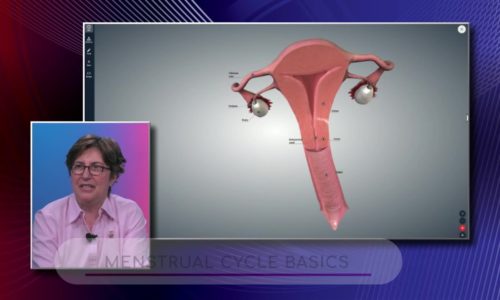Prenatal Care: Due Date |
Due date can be determined by two ways: if a patient has a regular period, she can go off when the first day of her last period was, and by ultrasound, explains Dr. Victoria Bedell, Obstetrician and Gynecologist with Baptist Health South Florida. Also Dr. Joanna Bedell, Obstetrician and Gynecologist with Baptist Health South Florida, describes the uses of the ultrasound machine during visits.
Transcript
So how do you determine a due date so a due date can be determined one of two ways if a patient has regular periods you can go off of when the first day of their last period was okay this usually once the patient gets pregnant their period stuff so you can predict a date from the first day of their last period and then we still always ultrasound patients as early as possible in the first trimester so if your due date based on the ultrasound measurement of the baby at the time of the ultrasound kind of matches within a week of the predicted date of the last period then we actually go with the date from the period what equipment do you use for a prenatal visit it depends what they need to get done that day but sometimes it’s just as simple as a stethoscope and a Doppler machine to check the heartbeat obviously if they’re having an ultrasound that day we use ultrasound but it’s actually a lot of simple stuff and then blood drying some times and any mother’s concerned that the equipment might harm the baby in any way or so that comes up every once in a while especially now that there’s a trendy thing to buy a Doppler machine to hear the heartbeat at home and so with those types of things that it comes into question of how often is it okay to do this safely we certainly recommend that patients actually don’t do that because if you ever have a concern at home that you can’t find the heartbeat it’s not something you should manage yourself it’s something that we should be managing with you right and maybe there’s moms that want to do that every single day and they really haven’t been a lot of studies to show is is using that machine every day because it is an ultrasound that can sometimes cause heat waves to the baby and we’re not sure if that’s safe so we actually tell patients not to use that that’s genetic so what’s in the office you.








